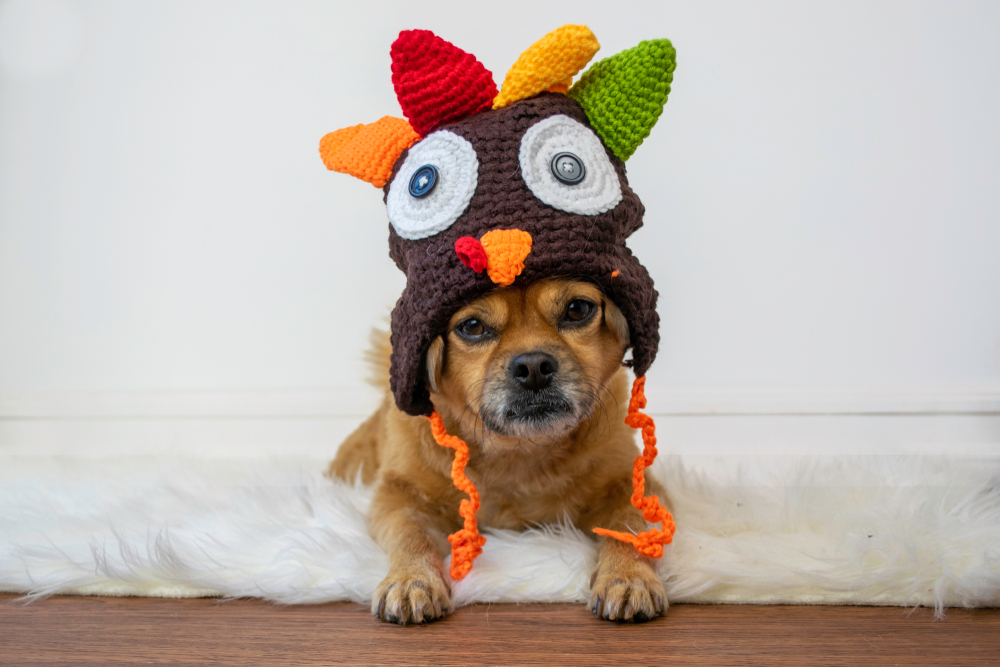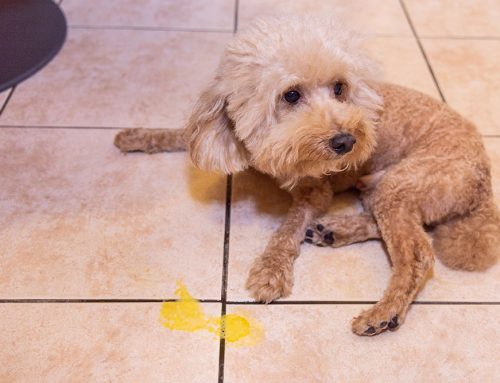Thanksgiving is all about food, family, and gratitude. But have you ever wondered how to keep your pets safe during all the holiday festivities? While we’re enjoying turkey and pie, our pets may face hidden hazards around the home. At Westerville Veterinary Clinic, located in Westerville, Ohio, we are dedicated to ensuring that your pets stay safe and healthy during the holidays. From toxic foods to dangerous decorations, we’ll walk you through the top Thanksgiving hazards and how to prevent a trip to the emergency vet.
Common Thanksgiving Hazards for Pets
Foods to Avoid
Thanksgiving means a kitchen full of tempting smells and counters covered with delicious food. However, some of these treats can be dangerous for pets. Here are the main foods to keep away from your furry friends:
- Onions, Garlic, and Chives: These ingredients, often used in stuffing and sides, can cause serious harm to pets, leading to red blood cell damage and gastrointestinal distress.
- Chocolate: Whether it’s in desserts or a quick snack, chocolate is highly toxic to both dogs and cats, causing symptoms from vomiting to seizures due to its theobromine content.
- Xylitol: Found in sugar-free desserts, this artificial sweetener can cause rapid insulin release, leading to liver failure and life-threatening hypoglycemia in pets.
- Uncooked Meat and Bones: Raw or undercooked meat, especially poultry, can harbor harmful bacteria like salmonella. Meanwhile, bones can splinter, posing a choking hazard or causing damage to the digestive tract.
Make sure to dispose of leftovers securely to keep curious pets from helping themselves. To learn more about tips for routine healthcare, visit our guide on Preventive Pet Care.
Decorations and Plants
It’s not just food that presents a hazard during Thanksgiving—decorations can be risky too. Be cautious with these common items:
- Candles and Open Flames: Pets can accidentally knock over candles, leading to burns or even starting a fire.
- Holiday Plants: While beautiful, plants like lilies, mistletoe, and holly can be toxic to pets, especially cats. Even a small amount can lead to severe gastrointestinal and cardiovascular issues.
- Decorative Items: Strings of lights, ribbons, and tinsel may seem fun for pets to play with, but if ingested, they can cause life-threatening conditions like intestinal blockages.
For more details on holiday hazards, you can check out the ASPCA’s Holiday Safety Tips.
Recognizing Symptoms of Distress in Pets
Even with all the precautions, accidents can still happen. It’s essential to know the signs that your pet might be in distress. If your pet has ingested something toxic, symptoms can range from mild to severe:
- Vomiting or Diarrhea: One of the most common signs that your pet has eaten something they shouldn’t.
- Lethargy: If your pet is unusually tired or seems withdrawn, it could indicate a health issue.
- Appetite Changes: Sudden loss of appetite or excessive thirst could be an indicator of distress.
If you notice any of these symptoms, it’s essential to act quickly. Refer to our detailed guide on Pet Health Signs That Warrant a Veterinary Exam to know when to seek help. At Westerville Veterinary Clinic, our emergency services are available to handle urgent situations.
Preventive Measures
Food Safety
Keeping your pets safe during Thanksgiving starts with being mindful of what they can access. Here are some top tips:
- Secure the Trash: Pets are experts at sniffing out food, even from the trash. Make sure all garbage cans are tightly sealed.
- Use Pet-Safe Treats: Instead of feeding your pet from the table, offer vet-approved treats that are designed for their digestive systems.
- Keep Food Out of Reach: Make sure countertops are cleared of food, especially when you’re not in the room. Quick counter-surfers can easily grab something harmful!
Environmental Safety
Creating a safe and comfortable environment is just as important as managing food safety. With a house full of guests, it’s easy for pets to get overwhelmed:
- Designate a Quiet Space: Set up a comfortable area for your pet to retreat to if the noise and activity become too much.
- Monitor the Doors: With guests coming and going, pets can easily slip outside unnoticed. Make sure someone is always keeping an eye on doors, especially if your pet is an escape artist!
How Westerville Veterinary Clinic Can Help
At Westerville Veterinary Clinic, we’re here to ensure your pet’s health and safety during the holidays. We offer:
- Emergency Care Services: Our new emergency facility is fully equipped to handle any holiday-related incidents. Whether your pet has eaten something harmful or been injured, we are ready to help.
- Routine Care: Regular check-ups before the holidays can help you stay ahead of potential health problems. Preventive care is key to keeping your pet healthy and happy year-round. Learn more about our wellness services on our Wellness Plans Page.
Need help with your pet? Make an appointment with us today for routine care or emergency assistance.
Keeping your pets safe during Thanksgiving is all about preparation and awareness. By recognizing potential hazards, knowing the symptoms of distress, and taking preventive measures, you can ensure that both you and your pets enjoy a worry-free holiday. If you have any questions or concerns about your pet’s health this holiday season, don’t hesitate to contact us. The team at Westerville Veterinary Clinic is here to help you every step of the way.







Leave A Comment